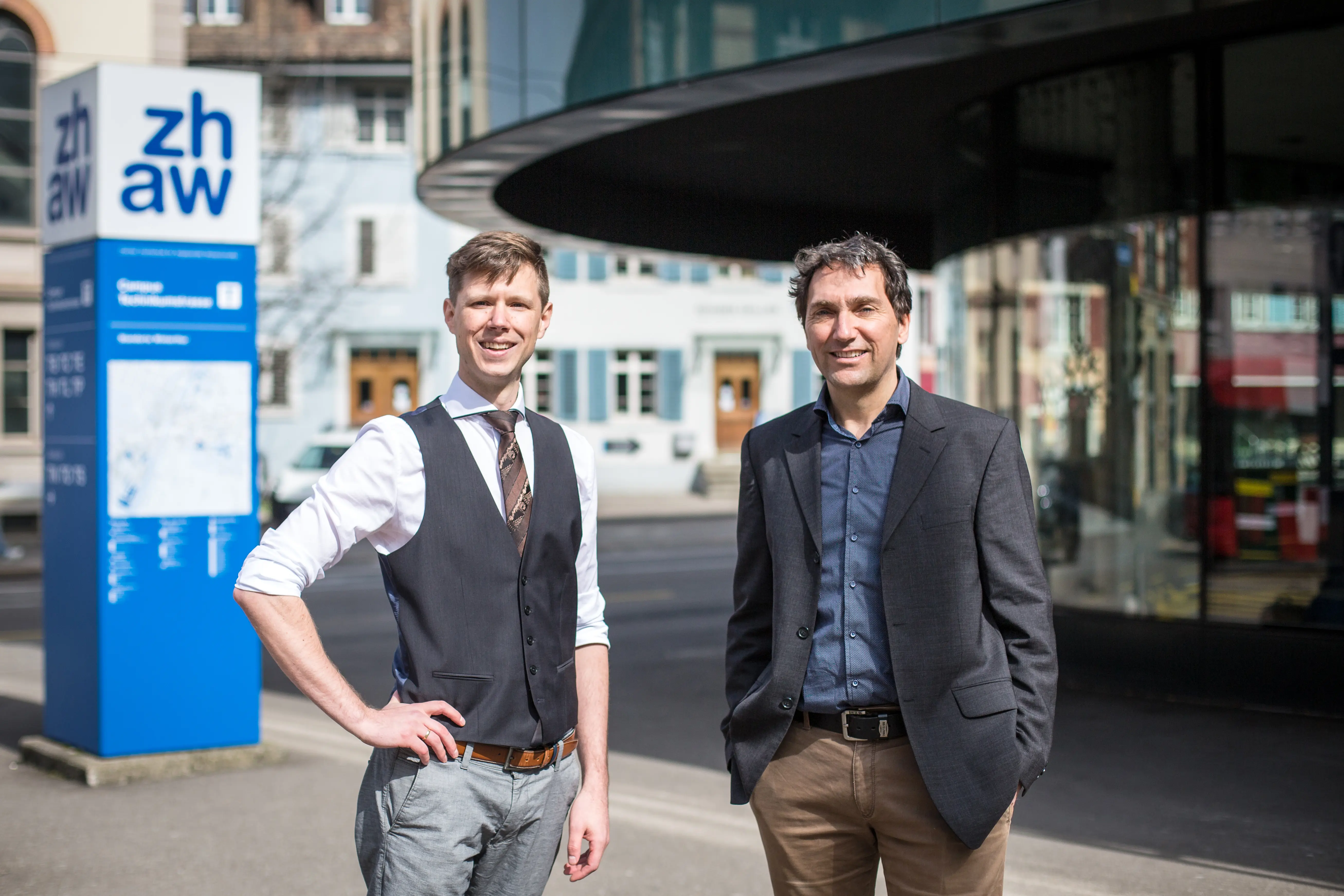ZHAW launches Centre for Artificial Intelligence
Machine Learning and Deep Learning have established themselves as major fields of research at the ZHAW School of Engineering. Scientific expertise around artificial intelligence is increasingly sought-after. By repositioning itself within the university, the discipline has gained visibility.

Automated legal analysis of contracts, the digital reading of sheet music and visual quality control of medical implants are just three of many artificial intelligence (AI)-based examples of application developed at the ZHAW School of Engineering. The research volume in the field has increased significantly over the past few years. In response to this trend, the School of Engineering has launched the Centre for Artificial Intelligence (CAI). “We built the Centre on a solid foundation: thanks to many years of experience in the field of machine learning, we already have a substantial body of knowledge to draw from,” says Dirk Wilhelm, Dean and Managing Director of the ZHAW School of Engineering. The Centre, which is spin-off of the Institute of Applied Information Technology, will commence operations on 1 April 2021 with a staff of twenty.
Focus on research and teaching
The CAI considers itself a competence centre for AI with specific focus on machine learning and deep learning. In its research, the CAI focuses on the advancement of the latest algorithms and models—for instance in the field of deep neural networks—to address complex application problems in various industries and domains. The Centre divides its activities into four strategic key areas: Autonomous Learning Systems, Explainable AI, Natural Language Processing as well as Computer Vision, Perception and Cognition. At Bachelor’s and Master’s level, the CAI chiefly contributes to the Information Technology and the new Data Science programmes. However, its involvement in teaching also extends to continuing education programmes. By taking the lead in specialised modules and supervising Bachelor’s and Master’s theses with a methodological orientation, the CAI brings together teaching and research.
Human-centric development
“Our holistic approach to issues around AI ensures broad and long-term applicability for the solutions to any one of the tasks we are working on,” says Thilo Stadelmann, ad interim Head of the CAI. Its ethical stance towards AI is of surpassing importance for the CAI. “The use of AI has the potential to have far-reaching effects on almost every area of society. From development to application, our efforts centre around people and from research to implementation, we are committed to an ethical approach.” He argues that, as a university of applied sciences, the ZHAW provides a proximity between foundational research and its applications. “With the newly launched CAI, we are not only well-positioned within the ZHAW, put also in the research landscape overall,” he adds. “This makes it easy for potential project partners to connect with us.”
Save the date:
On 29 June 2021, the Centre for Artificial Intelligence of the ZHAW School of Engineering will open in a festive setting and provide more detailed information about its activities – invitation to follow.
Contact
Professor Dr Thilo Stadelmann, ad interim Head of the Centre for Artificial Intelligence, ZHAW School of Engineering, phone 058 934 72 08, email thilo.stadelmann@zhaw.ch
Professor Dr Dirk Wilhelm, Dean and Managing Director, ZHAW School of Engineering, phone 058 934 47 29, email dirk.wilhelm@zhaw.ch
Matthias Kleefoot, Public Relations Manager, ZHAW School of Engineering, phone 058 934 70 85, email medien.engineering@zhaw.ch
Downloads
- Medienmitteilung: ZHAW gründet Zentrum für Künstliche Intelligenz (PDF 127 kB)
- Press Release: ZHAW launches Centre for Artificial Intelligence (PDF 121 kB)
- Foto: CAI-Gründer Stadelmann und Cieliebak vor ZHAW-Gebäude (JPG 9.59 MB)
- Foto: CAI-Gründer Thilo Stadelmann (JPG 9.04 MB)
- Foto: CAI-Co-Gründer Mark Cieliebak (JPG 11.10 MB)
- Foto: CAI-Gründer vor ZHAW-Gebäude (JPG 11.50 MB)
- Foto: Neue CAI-Räumlichkeiten ab Herbst 2021 (JPG 8.85 MB)